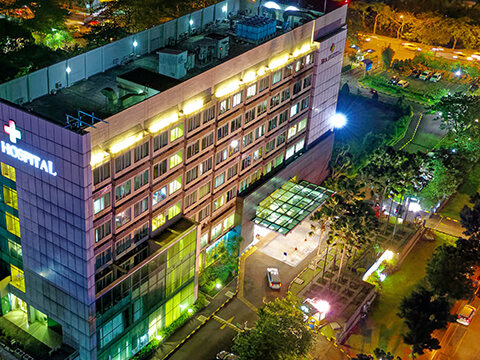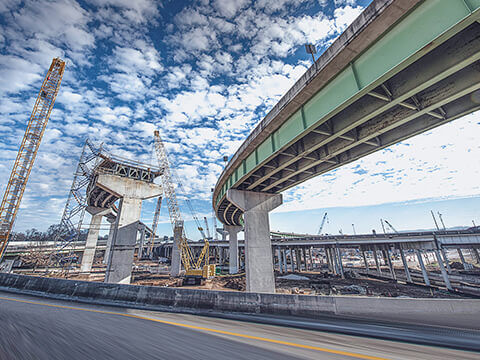 Investing in commercial real estate can provide both personal and financial gains. The hopes of future wealth and security are part of what drives investors to focus their efforts and capital in this sector. Commercial properties have a higher return on investment than many other investment options. For some people in higher income tax brackets, they invest in commercial real estate for the favorable tax benefits. The overall benefits of investing in commercial real estate include:
Investing in commercial real estate can provide both personal and financial gains. The hopes of future wealth and security are part of what drives investors to focus their efforts and capital in this sector. Commercial properties have a higher return on investment than many other investment options. For some people in higher income tax brackets, they invest in commercial real estate for the favorable tax benefits. The overall benefits of investing in commercial real estate include:
- Higher possible income – returns on investment average from 6 – 12%/
- Consistent cash flows – longer commercial leases provide stable income and cash flows.
- Lower competition – commercial real estate is harder so many investors avoid it.
- Long leases – commercial real estate provides a more consistent flow of income.
Types of Commercial Real Estate
With commercial real estate there are five primary types to understand. There is Office, Retail, Industrial, Multifamily, and Special Purpose. The most common type of commercial real estate is office. They can range from single tenant to skyscrapers, and typically produce higher and consistent income. They come in three categories, Class A, Class B, and Class C. Buildings that are Class A are typically defined as new or have extensive renovations. Buildings rated Class B are older and may require some type of repair. Class C commercial Real Estate is used for redevelopment purposes, requiring capital investments to improve out of date infrastructure.
For some investors, retail commercial real estate is a good choice. It has buildings like strip malls, and retail centers, banks and restaurants and are usually found in urban and suburban areas. The size of these can range from 5,000 square feet to 350,000 square feet. There are also industrial buildings, warehouses and large manufacturing sites with larger amounts of square footage and loading docks. Multifamily properties are effectively apartment complexes, but can also include high rise condominiums and smaller units. Finally, there are the Special Purpose commercial real estate investments as well. These buildings are built for a specific purpose, such as car washes, self-storage and entertainment facilities.
How To Invest in Commercial Real Estate
For newer investors in commercial real estate, the main thing they should be concerned with is due diligence. No matter what type of structure or location, doing extensive research is the key to success.
Understand the Differences of Commercial Real Estate
While many people believe they understand how to properly buy and sell a home, investing in commercial real estate presents unique factors that are distinctly different than single-family homes. The income derived from commercial properties are derived from usable square footage and longer term leases. Another important factor is the location of the commercial structure. Investors should spend a large portion of their analysis on the area and market trends. After purchasing a building, tenant selection becomes a critical step towards profitability. Being able to find quality tenants who are likely to remain in business throughout the term of the lease can determine profitability.
Evaluate Comparable
Comparables, or comps are a great way for potential investors to identify opportunities in commercial real estate. Comps allow for accurate comparisons of properties of similar sizes, location and styles.
Apply Metrics
In addition to market research, it is important for investors to calculate all of the financial ratios related to commercial real estate. Some of these include:
- Net Operating Income (NOI) – This metric calculates all revenue and expenses from a potential property.
- Cap Rate – Calculates the value of the income from the property and estimates future cash flow.
- Cash on Cash – This metric calculates the rate of return on their investment and is typically used when financing a commercial real estate transaction.
Mistakes to Avoid
Commercial real estate is more complex than other types of investing, but there are some pitfalls that investors should be aware of. Buying a large structure can be a significant investment and one of the most important things to remember is to minimize risk. Other mistakes to avoid include:
- Poor/improper valuation – each property is unique and should be evaluated as such; the true value should always be ascertained before investing.
- Ignoring the financials – the financial details of a building tell the story of whether you will be profitable. If something doesn’t look right, then find a different building.
- Forgetting/ignoring due diligence – While many investors want to execute a transaction quickly, taking the time to perform extensive due diligence will help avoid future problems (that are currently unseen).
- Going it alone – While you might be able to save a little bit of money doing it all yourself, bringing in others who can help you properly evaluate a commercial real estate investment can help you become profitable in the long term.






